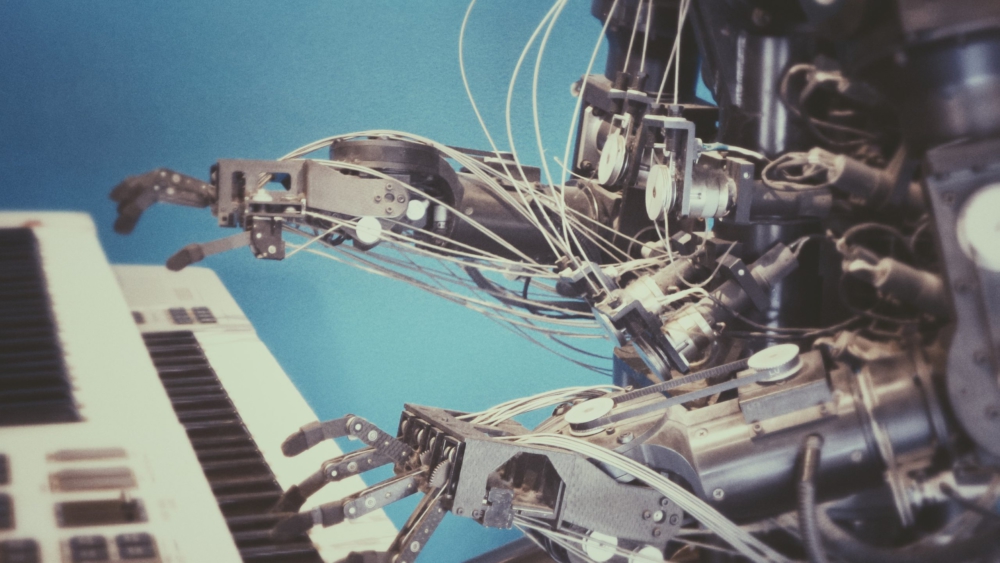Science fiction is undoubtedly a popular genre in Hollywood and a common theme we often come across is artificial intelligence (AI). From action packed films like The Matrix to family favourites like Wall-E, AI has been the centre of futuristic storytelling for decades. But one major theme of this storytelling is known as “the singularity theory”: robots becoming so intelligent and powerful they rise up and take over, which has given AI a bad reputation. In reality, this perception of artificial intelligence couldn’t be further from the truth.
Most of the digital tools we use today tap on AI to make our lives easier. I remember when I first started my career in PR, I used to come into the office bright and early to flip through newspapers, and manually cut and scan any coverage received. Today, I just need to log in to Meltwater and all the coverage I need is right there, thanks to AI.
While AI can be a powerful tool, it still requires people to write its algorithms and feed it data so that it functions properly. In the PR industry, AI can be a hugely helpful technology, powering the different software and digital tools that we use on a daily basis – helping us do our jobs better rather than taking over our jobs.
Here’s the recipe for how you can use AI can to be a better PR professional:
Sparks creativity
Creative thinking is an essential skill for those working in public relations. In fact, creativity is the key to unlocking original and memorable PR campaign ideas, and these creative ideas often are sharpened and polished when working collaboratively or through brainstorming sessions with colleagues and clients. This is all part of expansive human abilities – the unique ability to imagine, anticipate, feel as well as to judge and react according to changing situations – something that artificial intelligence cannot truly replicate.
Instead, AI abilities only correspond to the data we feed to them. This means AI-powered tools will never have the ability to to think outside the box or be creative. Rather than create ideas, AI can help PR professionals execute plans and replicate ideas based on what has already been done. While imitation may be the sincerest form of flattery, this may not be the case when it comes to PR campaigns.
Detects emotions
By nature, humans are empathetic: able to understand our own emotions and also those of others. This is extremely crucial in PR as every step we take impacts the public and stakeholders. Because of this, we must be in tune with how others may feel regarding certain PR campaigns or ideas to avoid blowback internally or externally.
Today, machines are still unable to have authentic emotions that come naturally to human beings. While AI can be programmed to detect emotions, these tools are unable to fully comprehend the reasons behind these emotions. The lack of empathy means they are not yet capable of coming up with effective campaigns that measure against the publics’ emotions. Nevertheless, emotion detection or recognition technology can help measure emotional states of large groups of people in a short time by simply analysing texts. This can be helpful for PR professionals who need to have a quick overview of public sentiments.
Boosts cultural awareness
Today, we live in a world that not only embraces but celebrates cultural diversity. This is why cultural awareness – the ability to understand, value and respect different cultures – is extremely important. This is especially true in the PR industry, as consultants and in-house teams help their clients with messaging and building brand awareness.
Executing nuanced cultural awareness can be a major challenge for machines due to AI bias. This comes down to the fact that the machine learning algorithms themselves are not perfect. AI learns based on data, so when bias exists within the data, then the AI itself will automatically be biased. For instance, Microsoft’s Twitter-based chatbot, Tay, lived a mere 24 hours before being shut down for being racist and misogynistic. This happened because of the influence of a user community who repeatedly tweeted offensive statements at Tay who learns based on interactions. Because of this, artificial intelligence cannot be fully relied on for creating sound and respectful communication trategies. This is why a human touch is crucial when crafting copy, be it for social media, a media release, or a presentation.
At the end of the day, AI is only as good as the data that powers it. Though it can be an extremely powerful tool, it is one that is meant to augment and complement human behaviour rather than replace humans entirely. With that, we must not fear AI, but learn to embrace it as part of our PR work.
Want to understand how we can make your PR work easier? Write to us at hello@mutant.com.sg

